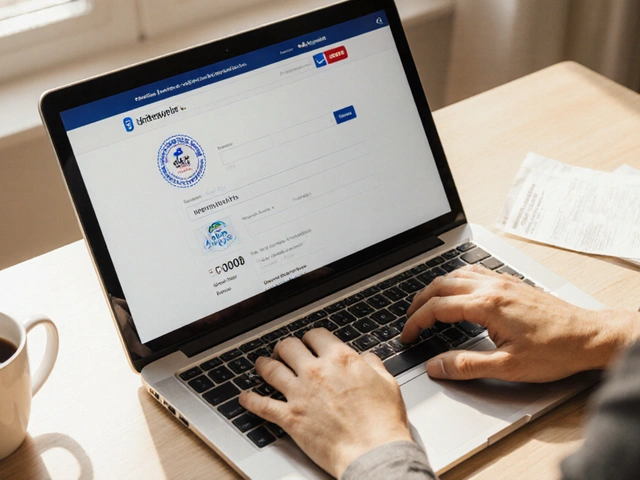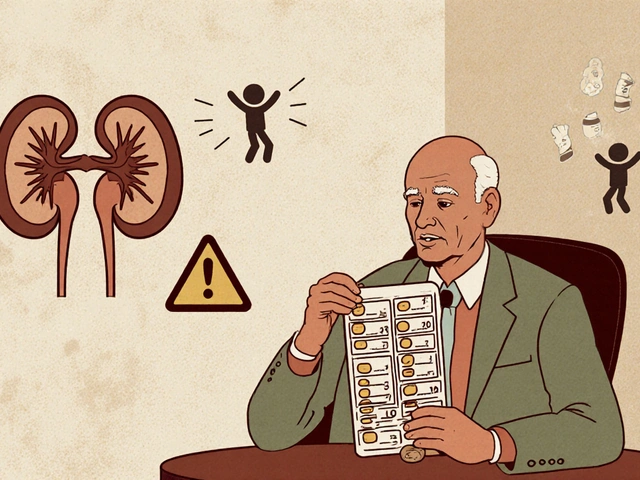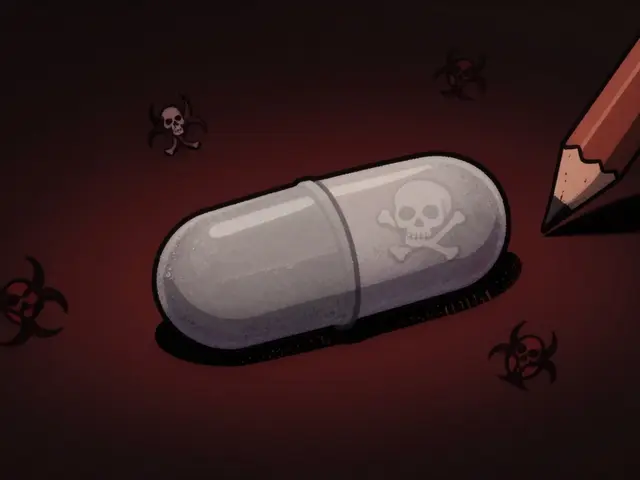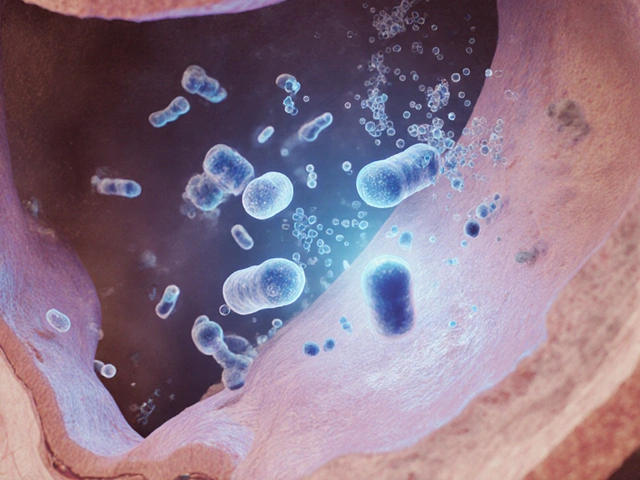CKD: What You Need to Know About Chronic Kidney Disease and Medication Risks
When your kidneys stop working the way they should, it’s not always obvious—until it’s serious. CKD, or chronic kidney disease, is a long-term condition where kidney function slowly declines over months or years. It’s not just about frequent urination or back pain. It’s about your body’s ability to filter waste, balance fluids, and control blood pressure. And here’s the catch: many of the drugs people take daily—like rosuvastatin, a common cholesterol-lowering statin, or omeprazole, a popular heartburn pill—can quietly affect how well your kidneys work. People with CKD often don’t realize their meds are adding stress to their kidneys until something goes wrong.
CKD doesn’t happen in a vacuum. It’s tied to other conditions you might already be managing: diabetes, high blood pressure, gout, even heart disease. That’s why so many posts here focus on drug interactions that matter most when your kidneys are already struggling. For example, NSAIDs, like ibuprofen or naproxen, can reduce blood flow to the kidneys and make CKD worse. Even common OTC cold meds with decongestants can raise blood pressure, which is dangerous if your kidneys can’t regulate it. And if you’re on prednisone, a steroid used for inflammation, you might not realize it’s raising your blood sugar and blood pressure—two things that accelerate kidney damage. These aren’t just side effects; they’re hidden risks for people with CKD.
What you’ll find below isn’t a list of generic drug guides. It’s a collection of real, practical insights from people who’ve been there—how statins affect blood sugar in CKD patients, why certain painkillers should be avoided, how diuretics can backfire if not monitored, and what alternatives exist when your kidneys can’t handle the usual options. Whether you’re newly diagnosed, managing complications, or just trying to protect your kidneys before it’s too late, these posts give you the facts without the fluff. No jargon. No guesswork. Just what you need to talk to your doctor and make smarter choices every day.
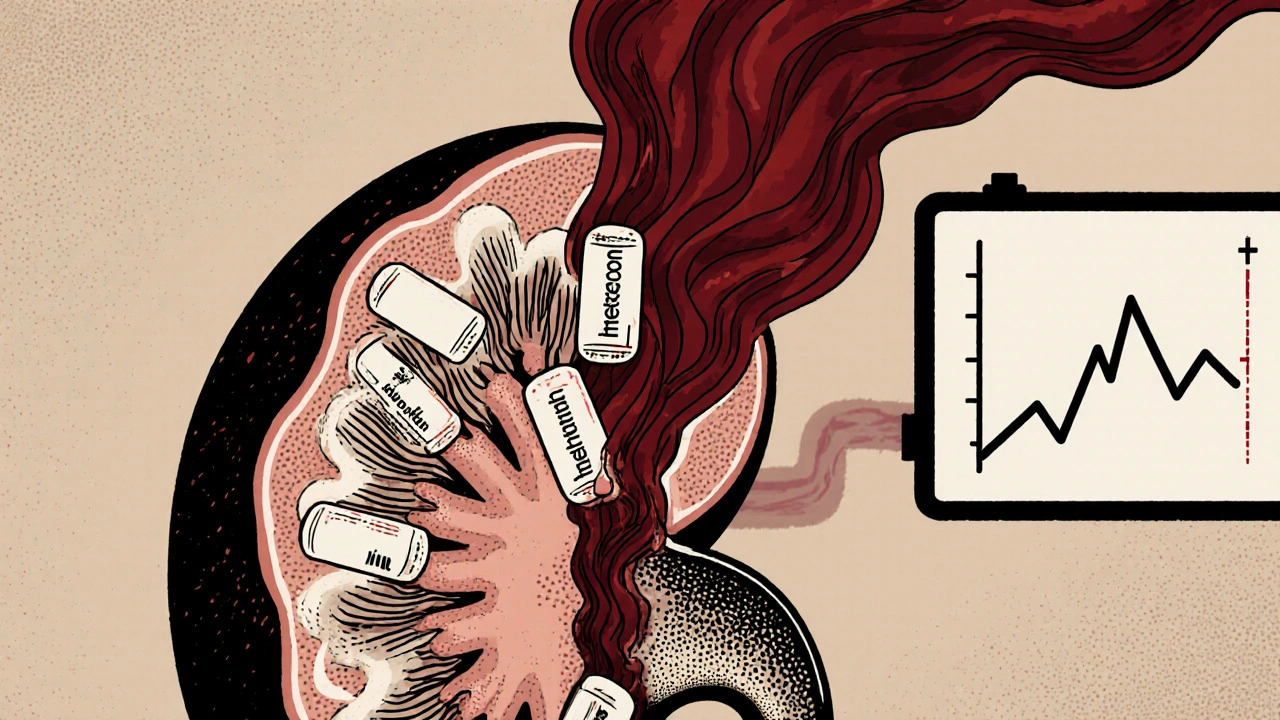
Kidney disease slows drug clearance, causing dangerous buildup. NSAIDs, sulfonylureas, and anticoagulants can turn toxic without proper dosing. Learn which meds are risky and how to stay safe.
Continue Reading

